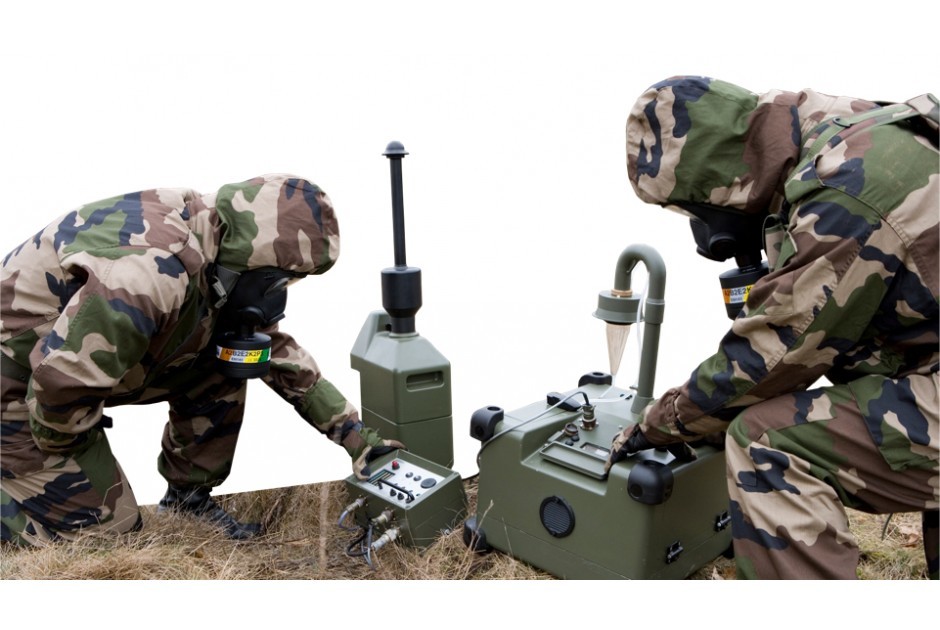NIJ 0115.01 Stab and spike resistance of armor compliance testing
The National Institute of Justice (NIJ) Standard 0115.01 is a comprehensive protocol designed to evaluate the stab and spike resistance of body armor, ensuring that it meets stringent performance criteria for law enforcement officers and military personnel. This standard is critical in the sector of human factors and protective equipment testing as it directly impacts officer safety and operational effectiveness.
The test measures the ability of body armor to resist penetration by sharp objects such as knives or spikes under controlled conditions. The protocol outlines detailed procedures, including specimen preparation, apparatus specifications, and acceptance criteria that ensure the accuracy and consistency of the results. The primary focus is on assessing the performance of ballistic-resistant materials in simulated real-world scenarios.
The testing process involves subjecting armor panels to a series of puncture attempts using standardized spike probes. These probes are designed to mimic the sharpness and potential force of actual threats, such as those encountered by law enforcement officers or military personnel during their duties. The test is conducted according to strict ISO standards, ensuring that results are comparable across different manufacturers and jurisdictions.
The purpose of this testing is not only to comply with regulatory requirements but also to provide stakeholders with a reliable means of assessing the effectiveness of protective equipment in critical situations. By adhering to NIJ 0115.01, laboratories can offer robust data that supports informed decision-making processes within law enforcement and military organizations.
Understanding the nuances of this testing is essential for quality managers, compliance officers, R&D engineers, and procurement specialists who must ensure that their facilities meet these stringent standards. The test results provide critical insights into the durability and reliability of protective gear, helping to enhance situational awareness and tactical readiness in high-risk environments.
During the testing process, specimens are carefully prepared according to specified guidelines to ensure uniformity across different batches or types of armor. This preparation includes cleaning, conditioning, and aligning the samples with precise tolerances as outlined by the standard. The apparatus used for this test is specifically designed to replicate real-world conditions, ensuring that the results accurately reflect the performance of the armor in various scenarios.
The acceptance criteria for NIJ 0115.01 are strict and must be met for a specimen to pass the test successfully. These criteria include not only the physical resistance to penetration but also factors such as deformation, heat generation, and the overall integrity of the armor after exposure to the puncture attempts. The use of advanced instrumentation ensures that even minor deviations in performance can be detected and analyzed.
By conducting this testing, laboratories play a vital role in safeguarding public safety by ensuring that law enforcement officers and military personnel have access to the most effective protective equipment available. This commitment to quality and reliability is reflected not only in the results of individual tests but also in the continuous improvement of standards and methodologies within the sector.
The importance of NIJ 0115.01 cannot be overstated, especially given the evolving nature of threats faced by these professionals. As new materials and designs emerge, it is crucial to have a standardized testing protocol that remains relevant and effective. By adhering to this standard, laboratories contribute significantly to enhancing operational safety and readiness across various sectors.
Why Choose This Test
- Comprehensive Evaluation: The test provides a thorough evaluation of the armor's resistance to stab and spike penetration, ensuring that it meets strict performance criteria.
- Regulatory Compliance: It is essential for compliance with national and international standards, ensuring that products meet regulatory requirements.
- Enhanced Safety: By selecting this test, stakeholders can ensure that the armor used by law enforcement officers and military personnel offers superior protection in critical situations.
- Data Reliability: The standardized testing process ensures consistent and reliable data, supporting informed decision-making processes within organizations.
The NIJ 0115.01 test is a cornerstone of the human factors and protective equipment sector, providing essential information for quality managers, compliance officers, R&D engineers, and procurement specialists. The ability to conduct this testing ensures that stakeholders can trust in the performance and reliability of the products they choose.
Quality and Reliability Assurance
- Strict Standardization: The test is conducted according to rigorous ISO standards, ensuring that results are consistent and comparable across different manufacturers.
- Data Accuracy: Advanced instrumentation used in the testing process allows for precise measurement of performance parameters, enhancing data accuracy.
- Continuous Improvement: By adhering to this standard, laboratories contribute to the continuous improvement of protective equipment, ensuring that it remains effective and reliable.
The emphasis on quality and reliability assurance is paramount in the sector of human factors and protective equipment testing. The NIJ 0115.01 test plays a crucial role in maintaining this high standard by providing robust data that supports informed decision-making processes within law enforcement and military organizations.
Through continuous improvement and adherence to strict standards, laboratories can ensure that the products they develop or evaluate meet the highest levels of performance and reliability. This commitment to excellence is critical in safeguarding public safety and enhancing operational readiness in high-risk environments.
International Acceptance and Recognition
The NIJ 0115.01 test has gained widespread acceptance and recognition across various countries, particularly within the law enforcement and military sectors. The standard is widely adopted due to its reliability and effectiveness in evaluating armor performance.
Countries around the world recognize the importance of this testing protocol as it ensures that protective equipment meets stringent safety standards. Many international organizations and governments have incorporated NIJ 0115.01 into their procurement processes, recognizing the value of standardized testing in enhancing operational readiness and public safety.
The global acceptance of this test highlights its significance in the sector of human factors and protective equipment testing. By adhering to these standards, laboratories can ensure that they are meeting international benchmarks for quality and reliability.





